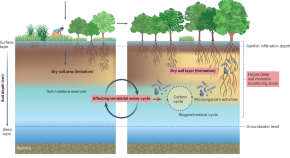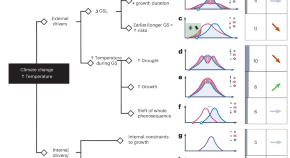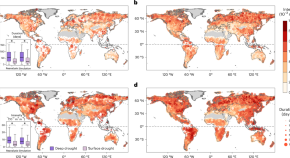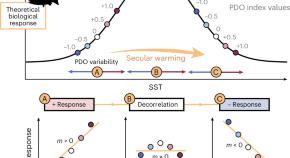Climate Insights for 2025: What You Need to Know
Unpacking the latest research findings on climate change













As we step into 2025, the urgency of climate change has never been more pronounced. Recent research reveals alarming trends that demand immediate attention from policymakers and the public alike.
Key Insights from Climate Research
The latest report from Future Earth highlights ten critical insights into climate science, including the diminishing capacity of land-based carbon sinks and the rising threat of mosquito-borne diseases due to higher temperatures [1].

The Decline of Carbon Sinks
Research indicates that land-based carbon sinks are reaching critical limits. This decline poses a significant threat to our ability to mitigate greenhouse gas emissions effectively [1].
Heat Stress and Labor Productivity
Increased heat stress is leading to a sharp decline in labor productivity, particularly in outdoor sectors like agriculture and construction. This trend could have profound economic implications as climate change progresses [1].
The Rise of Mosquito-Borne Diseases
Rising temperatures are exacerbating outbreaks of diseases such as malaria and dengue fever. As the climate warms, the geographic range of these diseases is expanding, posing new public health challenges [1].

Soil Moisture Droughts
Recent studies reveal that deep soil moisture droughts are becoming more severe due to anthropogenic climate change. This phenomenon threatens agricultural productivity and water supply [3].
The State of Climate Action in 2025
According to the World Resources Institute, the state of climate action remains critical. Key findings indicate that while some progress has been made, much more is needed to limit global warming to 1.5 degrees Celsius [2].
The report emphasizes the need for accelerated climate finance and a transition to renewable energy sources to combat the ongoing climate crisis effectively [2].

The transition to electric mobility and sustainable agriculture practices is also highlighted as essential steps toward achieving climate goals [2].